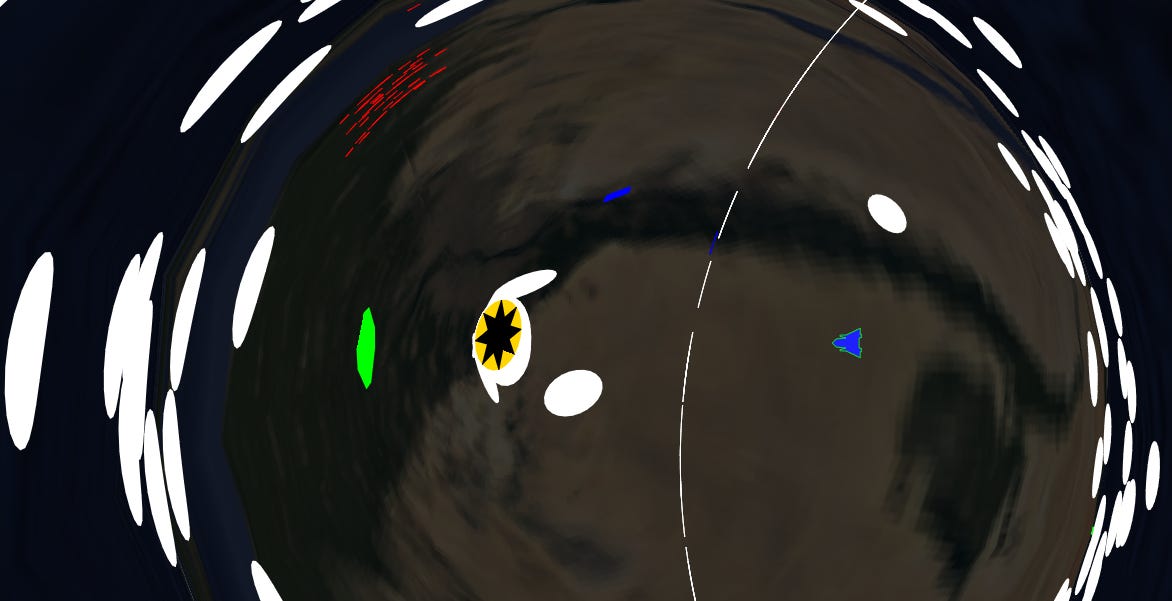
In Atari's 1979-released coin-op game Asteroids, you play a dinky 2D starfighter blowing up drifting space rocks while fending off the occasional flying saucer. It can feel overwhelming - the play area wraps around itself, so you're constantly having to reorient when an asteroid coasts off screen and reappears opposite. But there's a fundamental orderliness to it. Each rock splits precisely into a pair of smaller, faster fragments when shot, which in turn split in two. Shooting wildly fills the screen with shrapnel, so you learn to be judicious, all the while swivelling and firing your rear booster to manage your ship's inertia.
Asteroids is, for me, one of the Perfect Games: simple props and rules, graceful execution, an organic, player-driven challenge factor accompanied by a cheeky variation on the Jaws theme. Zeno Rogue's homage-of-sorts Relative Hell is a touch less intuitive. It looks like Asteroids at a glance: a hardy little ship in the centre, blasting away at a throng of floating hazards. But that cleanly proportioned square of rogue boulders has become a clouded fisheye, not quite a circle, not quite a ball, with objects shrinking and stretching into bizarre, coloured fissures at the perimeter. Activating your ship's booster deforms the asteroids you're trying to navigate around - are they above or below you? What do "above" or "below" mean here anyway? - while your bullets travel in strange, broken arcs, swelling and dispersing as they travel.
Is it a glitch of some kind? You check the settings menu and it only adds to the confusion. One of the options is "View the future": this twists the whole asteroid field into a motley claymation spiral, as though each fleeting second in every rock's existence had been time-locked and grafted sloppily to the next. Another option gives each asteroid a separate numerical time signature. Then you hit "view the spacetime" and the play area becomes a 3D vortex of silhouettes, chasing each other down towards the barely-visible fleck of your vessel, a descent interrupted only when the simulation crashes.
